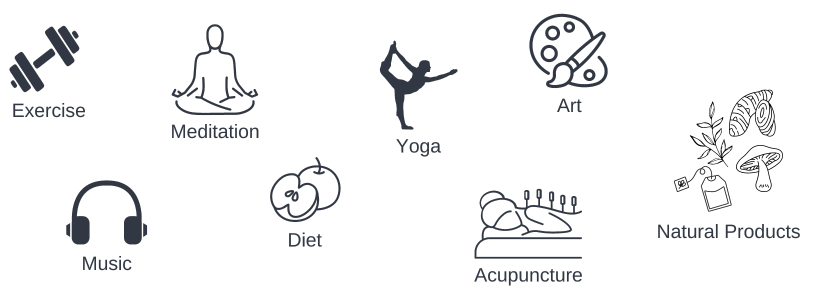
Integrative Medicine Research in Chronic Lymphocytic Leukemia (CLL)
You can help us fund scientific research to improve the quality of life for individuals with CLL. Scroll down for more details.
$122,130Raised of $122,000
CLL Society's 2024 Integrative Medicine in CLL Research Award Complete!
THANK YOU to everyone who has contributed and helped us secure the full matching funds from the Sim Einstein Research Foundation, Inc. and Vigyan Singhal! Your support has fully funded a new Integrative Medicine in CLL Award as part of CLL Society's Research Program.
Further donations will be attributed to CLL Society's Research Program.
About CLL Society's Research Program
CLL Society is rapidly positioning itself to be a dynamic driver of research in the field of chronic lymphocytic leukemia. In 2024, CLL Society is expanding our research program to include an Integrative Medicine in CLL grant opportunity.
CLL Society's Research Program was created out of the growing need for there to be more funding available to researchers for academic and research-related work that is specifically focused on CLL/SLL. CLL is the most common adult leukemia and remains largely incurable. For the many individuals living with CLL, they deserve improved treatment options and a cure.
By providing researchers with meaningful grants, we can help to grow and develop a new generation of scientists committed to solving the unmet needs of CLL and SLL.
CLL Society is proud to be the first nonprofit organization of its kind to launch a research program that is solely dedicated to chronic lymphocytic leukemia. We dream of a day very soon when this work will lead to a cure.
What is Integrative Medicine?
Integrative medicine is a patient-centered, evidence-informed field of comprehensive cancer care that uses mind-body practices, natural products, and lifestyle modifications from different traditions in addition to conventional cancer treatments to promote optimal health and well-being.
Integrative Medicine Practices Include:

Why Is It Important to Study Integrative Medicine?
Integrative medicine practices are the only form of therapy that truly address a patient's holistic well-being. Many integrative medicine interventions are widely available to the public. However, strong scientific evidence about whether they are safe and offer clinical benefits for specific medical conditions (such as CLL/SLL) and symptoms are lacking.
Who Funds Integrative Medicine Research?
It is people like you donating to research programs at nonprofits like CLL Society that make funding available for scientists to study the field of integrative medicine.
Funding for integrative medicine is extremely limited from other sources, but an area of great interest to the CLL community.
CLL Society's new Integrative Medicine in CLL Award will provide the much-needed funding to researchers who value this important field of study for patients just as much as we do - but we need your support to make it happen.
